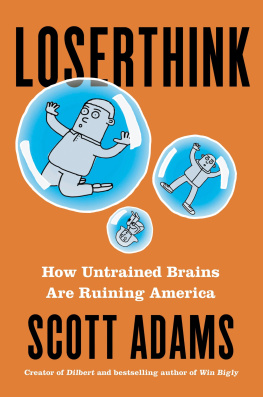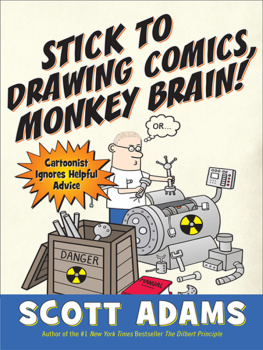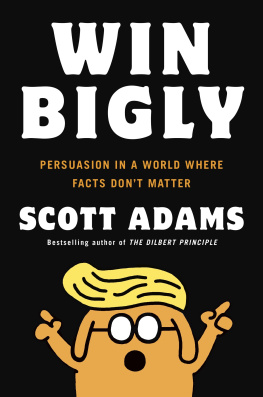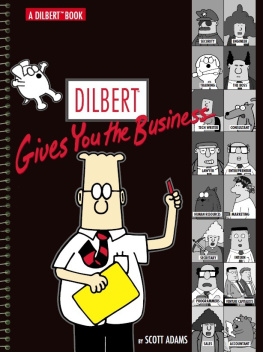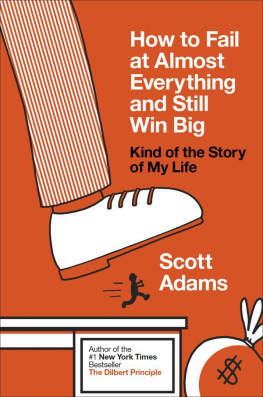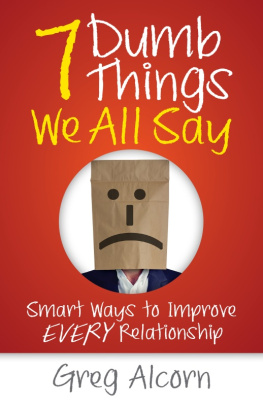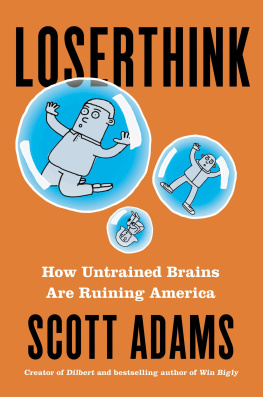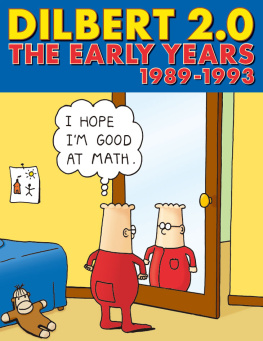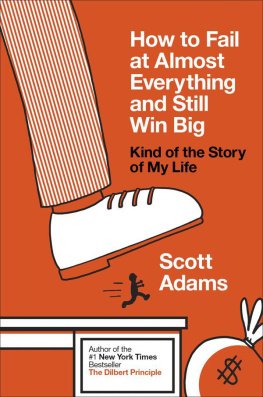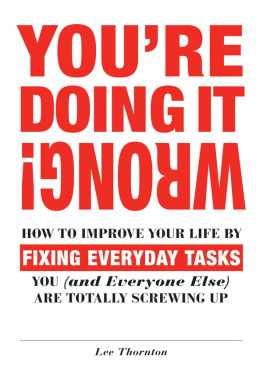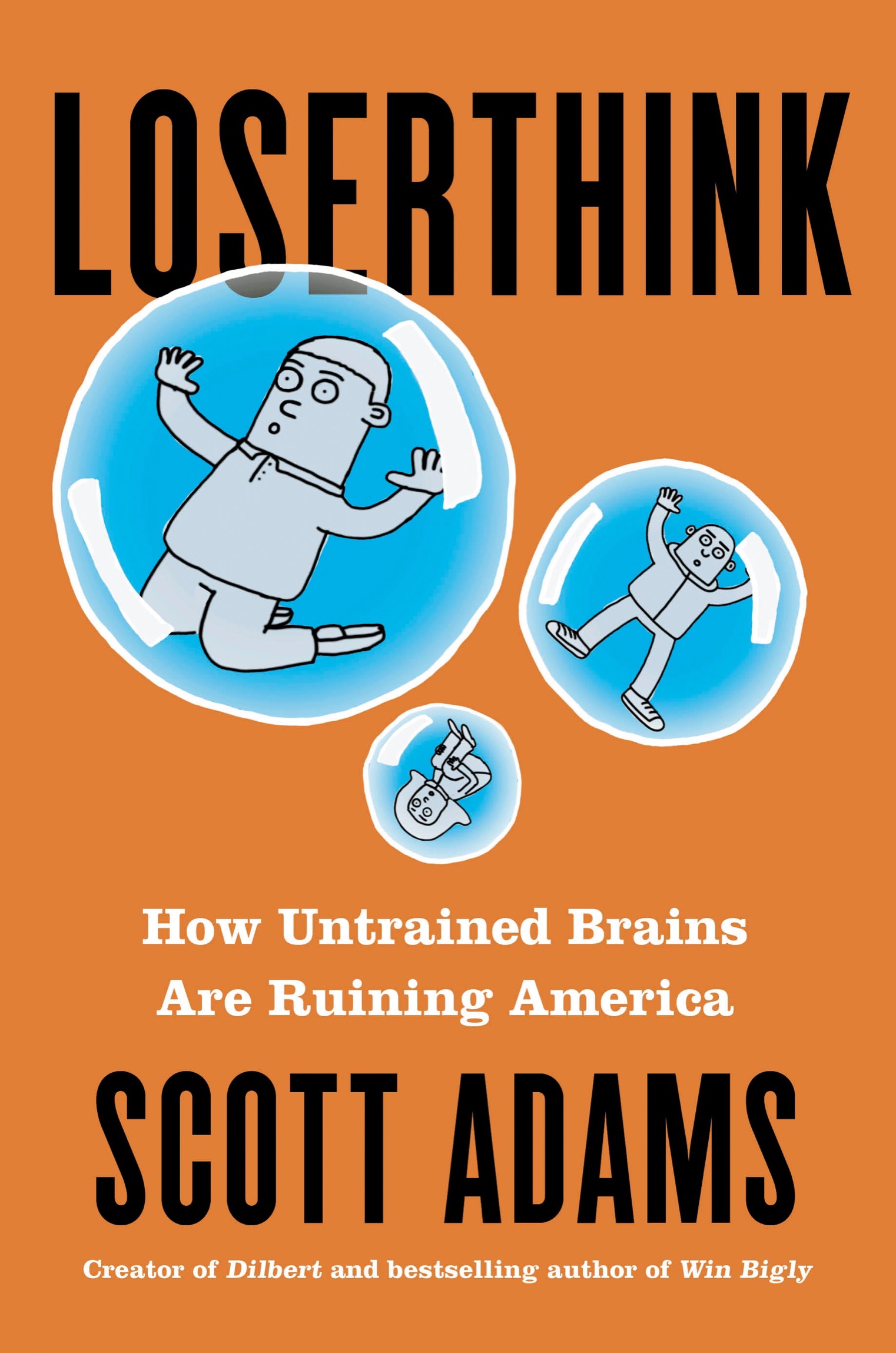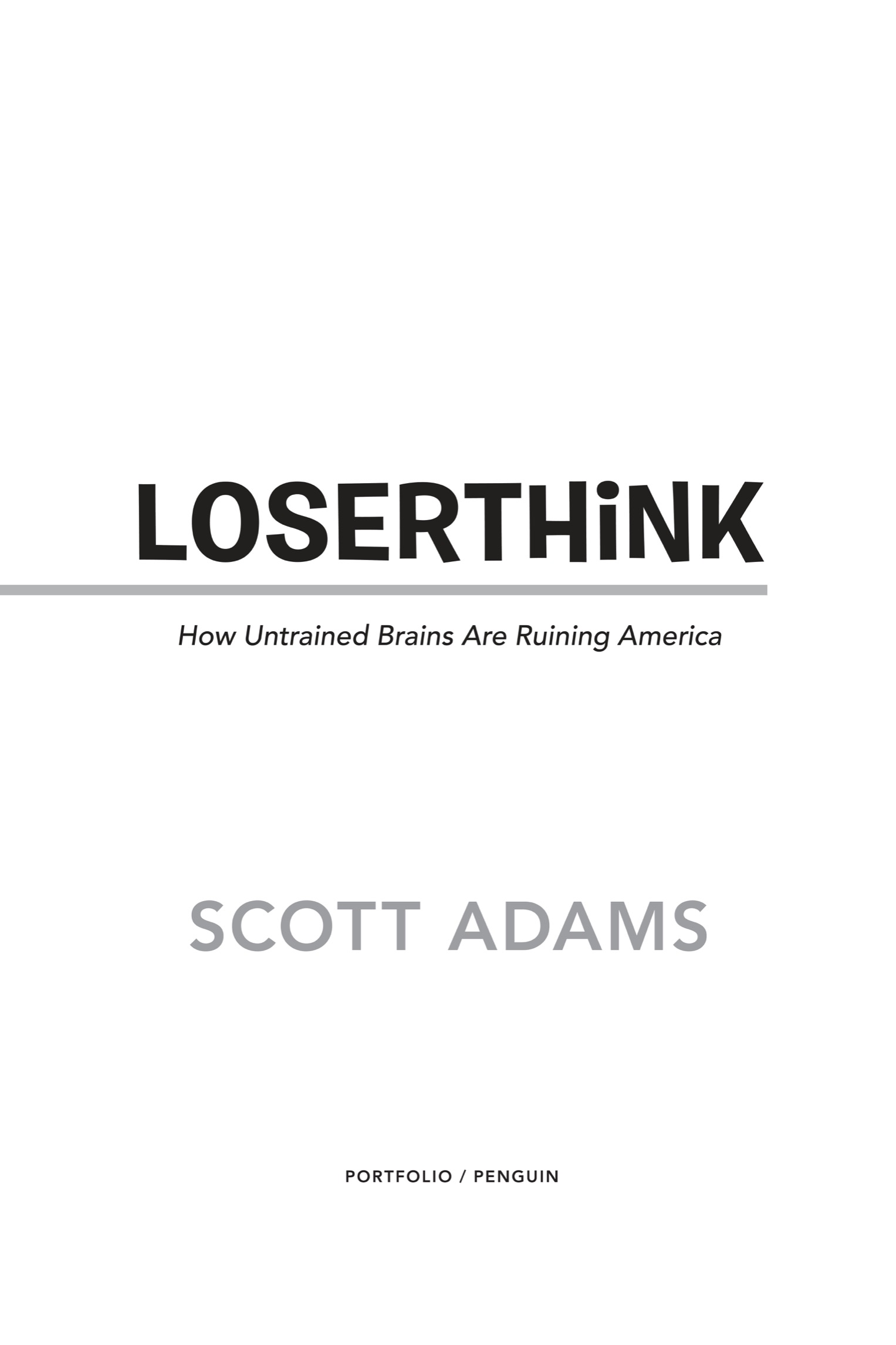
Portfolio/Penguin
An imprint of Penguin Random House LLC
penguinrandomhouse.com

Copyright 2019 by Scott Adams, Inc.
Illustrations copyright 2019 by Scott Adams, Inc.
Penguin supports copyright. Copyright fuels creativity, encourages diverse voices, promotes free speech, and creates a vibrant culture. Thank you for buying an authorized edition of this book and for complying with copyright laws by not reproducing, scanning, or distributing any part of it in any form without permission. You are supporting writers and allowing Penguin to continue to publish books for every reader.
Library of Congress Cataloging-in-Publication Data
Names: Adams, Scott, 1957 author.
Title: Loserthink : how untrained brains are ruining America / Scott Adams.
Description: New York : Portfolio/Penguin, 2019. | Includes bibliographical references and index. |
Identifiers: LCCN 2019022926 (print) | LCCN 2019022927 (ebook) | ISBN 9780593083529 (hardcover) | ISBN 9780593083536 (ebook)
ISBN 9780593086339 (international edition)
Subjects: LCSH: Thought and thinking. | Divergent thinking. | Reasoning.
Classification: LCC BF441 .A285 2019 (print) | LCC BF441 (ebook) | DDC 153.4/2dc23
LC record available at https://lccn.loc.gov/2019022926
LC ebook record available at https://lccn.loc.gov/2019022927
Penguin is committed to publishing works of quality and integrity. In that spirit, we are proud to offer this book to our readers; however, the story, the experiences, and the words are the authors alone.
Cover illustrations: Scott Adams
Version_1
For my love, Kristina
Contents
CHAPTER 1
What Is Loserthink?
Despite evidence to the contrary, we all use our brains. But most of us have never learned how to think effectively. Im not talking about IQ or other measures of intelligence, which matter in their own way, of course. Im talking about thinking as a learned skill. We dont teach thinking in schools, and you can see the results of that nearly every day. If you use social media, or you make the mistake of paying attention to other peoples opinions in any form, youre probably seeing a lot of absurd and unproductive reasoning that I call loserthink.
Loserthink isnt about being dumb, and it isnt about being underinformed. Loserthink is about unproductive ways of thinking. You can be smart and well informed while at the same time being a flagrant loserthinker. That is not only possible; its the normal situation. My observation, after several decades on this planet, is that clear thinking is somewhat rare. And theres a reason for that. No matter how smart you are, if you dont have experience across multiple domains, youre probably not equipped with the most productive ways of thinking.
Loserthink isnt about being dumb, and it isnt about being underinformed. Loserthink is about unproductive ways of thinking.
For example, a trained engineer learns a certain way of thinking about the world that overlaps but is different from how a lawyer, a philosopher, or an economist thinks. Having any one of those skill sets puts you way ahead in understanding the world and thinking about it productively. But unless you have sampled the thinking techniques across different fields, you are missing a lot. And again, to be super clear, I am not talking about the facts one learns in those disciplines. I am only talking about the techniques of thinking that students of those fields pick up during the process of learning.
The good news is that you dont need to master the fields of engineering, science, economics, philosophy, law, or any other field in order to learn the basics of how to think the way experts in those areas think. For example, if you didnt know what the concept of sunk costs is all about, I could explain it in thirty seconds and you would fully understand it.
Sunk costs: Money you already spent shouldnt influence your decision about what to do next, but for psychological reasons, it often does.
I wrote this book to get you acquainted with (or remind you of) the most productive thinking techniques borrowed from multiple domains. Collectively, they will help you avoid unproductive loserthink.
Tiger Woods was born with a lucky arrangement of DNA that allowed him to dominate the game of golf for years. But his natural talents would have been wasted had he not learned the strategies and techniques of golf. This is true of any learned behavior. Natural talent can only get you so far. If you want to be good at the not-so-ordinary task of thinking productively, you need to learn some techniques and then practice them. Your so-called common sense can dupe you into believing you already know how to think effectively.
Ill show you what you might be missing.
Expect to read in this book some ideas that you already know, plus some things you dont. Everyone is coming to this book from a different starting point. I know from experience that many of you will give this book as a gift to the unproductive thinkers in your lives, and I wanted to create a complete picture for them, if not for you, O wise book-giver. Im guessing that half of the people reading this book already knew how to think about sunk costs the right way. The other half just caught up.
Learning how to think productively does not come naturally to any of us. But it is easy to learn. You simply have to be exposed to the techniques and youll likely remember them for the rest of your life. The techniques are simple to understand and easy to master. This book will set your brain filters to recognize loserthink wherever you encounter it, in others and in yourself.
We humans give greater weight to things that have names. And giving loserthink its name creates a shorthand way of mocking people who practice unproductive thinking. Mockery gets a bad rap, but I think we can agree it can be useful when intelligently applied. For example, mocking people for lying probably helps to reduce future lies and make the world a better place, whereas mocking people for things they cant change is just being a jerk.
As the creator of the Dilbert comic strip, I use mockery almost every day to keep the most ridiculous management practices from spreading. If that sounds like I have an exaggerated sense of my impact on society, consider that, in 2018, Tesla CEO Elon Musk wrote a memo to all employees in which he explained how to be productive in meetings. Here is one of his rules.
Elon Musks Rule Six: In general, always pick common sense as your guide. If following a company rule is obviously ridiculous in a particular situation, such that it would make for a great Dilbert cartoon, then the rule should change.
Notice that it was easier for Musk to describe what he wanted of his employees because the word Dilbert exists in their common vocabulary and they all have a sense of what a Dilbert-like policy looks like. Naming things can weaponize them.
I used the Tesla example because it was easy to find a published quote. But I can tell you that for almost three decades I have been getting direct reports from managers of big companies telling me they changed or avoided policies because We dont want to end up in a

